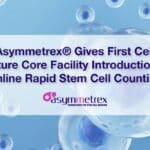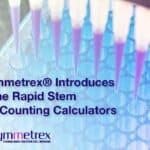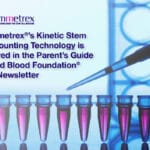With Disclosure of Recently Met Benchmarks for Its Adult Tissue Stem Cell Counting Technology, Asymmetrex Targets Applications to Enable Gene-Editing Therapies
Yesterday, tissue stem cell biotechnology start-up company Asymmetrex, LLC posted results on its website from the most recently completed benchmark studies for its computer simulation technology for determining the number of stem cells in complex organ and tissue cell preparations. With the disclosure of the continuing progress with development of its “AlphaSTEM” technology, the company is now directing its attention to reducing important stem cell-related barriers to the success of emerging new gene-editing therapy strategies.
BOSTON, MA (PRWEB) OCTOBER 28, 2015
With the release of the report (download site) on the most recent progress in continuing to validate its “AlphaSTEM” technology for counting adult tissue stem cells, Asymmetrex introduces a new focus of application for the first-of-its-kind technology. In previous months, the company has emphasized the use of AlphaSTEM for earlier identification of pharmaceutical drug candidates that are toxic to tissue stem cells. The new report demonstrates this capability for well-known stem cell-toxic cancer drugs against two different types of human tissue stem cells, liver and blood. Now, the company expands the reach of AlphaSTEM technology to accelerating the development of new gene-editing therapies.
Several companies are now pursuing more effective and safer gene therapy strategies based on either incorporating normal genes to compensate for inherited mutations or using new gene-editing technologies to correct the mutations. Ideally, the normal genes must be transferred into adult tissue stem cells, which are the crucial receiving cell type required to achieve the ideal long-term, single dose gene therapy treatment. Tissue stem cells are the only known body cells that have the province to provide such a lifelong cure.
Asymmetrex, founder and director, James L. Sherley, M.D., Ph.D, has recently blogged about the great importance of stem cell number for success in new gene-editing therapies. If too few stem cells were present during introduction of normal genes or editing, none may have been corrected. This situation would result in patients being rescued transiently by cells that could not renew mature tissue cells for longer periods.
A second foreseeable problem would be that not enough corrected blood stem cells were given to patients. All cells, even tissue stem cells, have some rate of cell death. Give too few stem cells and eventually their death rate can win out, leaving the patient without a source of tissue renewal. Sherley believes this is where Asymmetrex’s technologies for counting tissue stem cells, and also expanding their number, can greatly enable success in gene-editing therapies.
The newly released benchmark results establish highly relevant capabilities of Asymmetrex’s AlphaSTEM technology that was developed in a partnership with AlphaSTAR Corporation. AlphaSTEM was used to determine the numbers of lung stem cells, liver stem cells, and blood stem cells. By determining stem cell number, viability, and tissue cell renewal functions, the technology correctly identified both stem cell-toxic and stem cell-activating agents. The company also disclosed complementary studies showing that its patented stem cell-activating agents expanded the number of blood stem cells.
The combination of Asymmetrex’s tissue stem cell expansion technology and AlphaSTEM tissue stem cell counting technology could greatly accelerate progress in gene-editing therapy development. Increasing tissue stem cell number could greatly accelerate and increase facility with gene introduction and gene-editing procedures; and it could provide more corrected stem cells for transplantation therapy. Knowing the number of stem cells prior to correcting and at the time of transplantation would be invaluable data for developing the most efficacious and long-lived therapies.
“Our technologies could make a big difference in the rate of success in transforming new gene-editing technologies into effective new therapies,” said Sherley. The work for Asymmetrex now is to make sure the new industry is aware of the unique enabling applications that Asymmetrex and its partner AlphaSTAR are ready to offer.
About Asymmetrex
Asymmetrex, LLC is a Massachusetts life sciences company with a focus on developing technologies to advance stem cell medicine. Asymmetrex’s founder and director, James L. Sherley, M.D., Ph.D. is an internationally recognized expert on the unique properties of adult tissue stem cells. The company’s patent portfolio contains biotechnologies that solve the two main technical problems – production and quantification – that have stood in the way of successful commercialization of human adult tissue stem cells for regenerative medicine and drug development. In addition, the portfolio includes novel technologies for isolating cancer stem cells and producing induced pluripotent stem cells for disease research purposes. Currently, Asymmetrex’s focus is employing its technological advantages to develop facile methods for monitoring adult stem cell number and function in clinically important human tissues.







Leave a Reply